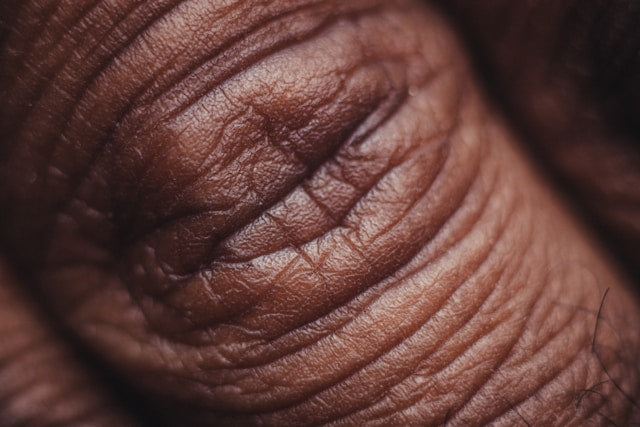
Menopause marks a significant transition in a woman's life, bringing about various physiological changes, particularly in the skin. notable alteration is the shift in the skin's pH balance, which can lead to increased sensitivity and other dermatological concerns.
Understanding Skin pH and Its Importance
The skin's surface is naturally acidic, typically maintaining a pH around 4.5 to 5.5. This acidity, often referred to as the "acid mantle," plays a crucial role in:
- Protecting against harmful bacteria and pathogens.
- Regulating enzyme activity essential for skin barrier function.
- Maintaining moisture by supporting lipid formation.
A balanced pH ensures the skin remains resilient, hydrated, and less prone to irritation.
Menopause and Hormonal Influences on Skin pH
During menopause, oestrogen levels decline significantly. Oestrogen is instrumental in various skin functions, including collagen production, moisture retention, and maintaining skin thickness. Its reduction leads to several skin changes:
- Increased Skin pH: Research indicates that post-menopausal women experience a rise in skin pH levels. This shift towards alkalinity can impair the activity of enzymes like acid sphingomyelinase, which are vital for ceramide production—lipids that maintain skin barrier integrity.
- Compromised Skin Barrier: A higher pH can weaken the skin's barrier function, making it more susceptible to external irritants and pathogens. This vulnerability often results in increased skin sensitivity, dryness, and a heightened risk of infections.
Manifestations of Increased Skin Sensitivity
The alteration in skin pH during menopause can lead to various dermatological issues:
- Dryness and Pruritus: The skin may become drier and itchier due to decreased moisture retention and lipid content.
- Atrophy and Wrinkling: Reduced collagen and elastin contribute to thinner skin and the formation of wrinkles.
- Increased Irritation: A compromised barrier allows irritants to penetrate more easily, leading to redness, inflammation, and discomfort.
Natural Skincare Recommendations
To manage these changes, adopting a gentle and natural skincare routine is beneficial. Here are some recommendations:
- Gentle Cleansing: Use mild, fragrance-free cleansers that do not strip the skin of its natural oils. Avoid products containing harsh ingredients such as alcohol, fragrance, and sulfates, which can further irritate sensitive skin.
- Hydration: Keeping the skin hydrated and nourished by using a moisturiser
- Sun Protection: Menopausal skin is more prone to sun damage. Applying a broad-spectrum SPF daily can prevent further sensitivity and protect against harmful UV rays.
- Diet and Lifestyle: Incorporate a balanced diet rich in antioxidants, stay hydrated, and engage in regular exercise to promote overall skin health.
Ermana offers a range of natural skincare products suitable for menopausal skin:
- Revive Face Oil: Formulated with a blend of natural oils, this product helps to nourish and rejuvenate the skin, restoring its natural glow.
- Soothe Body Oil: Designed to hydrate and calm sensitive skin, this body oil is ideal for alleviating dryness and irritation.
- Cleanse Balm: A gentle cleansing balm that effectively removes impurities without stripping the skin of its natural moisture.
By understanding the changes that occur during menopause and adjusting your skincare routine accordingly, you can maintain healthy, comfortable skin during this transition. Opting for natural, gentle products and being mindful of your skin's evolving needs will help you navigate this period with confidence.

Comments (0)
Back to News